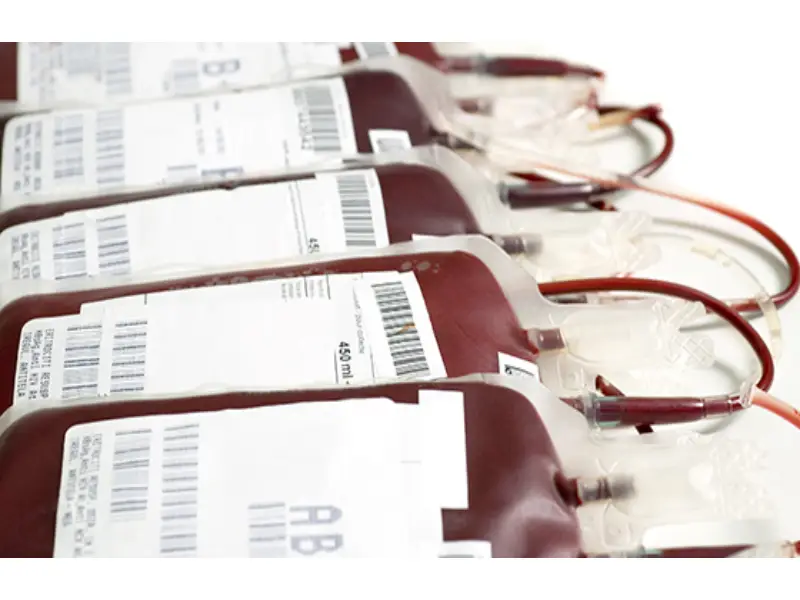No funds for blood banks, people forced to find donors on social media during emergencies
By Aiswarya Sriram
Hyderabad: Telangana’s industries minister K. Taraka Rama Rao's proposal to set up COVID-19 blood banks to collect anti-body rich plasma from patients who have recovered has brought an RTI reply to the limelight which states that Telangana has not allocated any budget for blood banks from 2014 to 2019.
An RTI filed by activist Robin Zaccheus in August 2019 revealed that there are 15 national AIDS control organisation (NACO) blood banks in Telangana. But no funds have been allocated to maintain these blood banks and to improve the facility.
Mr Zaccheus told NewsMeter, “When Dengue was spreading in the state during August-September 2019, people were running from pillar to post to get blood. Till now, if there is a blood emergency people tweet or share their details on WhatsApp and they get it through strangers. During such times, private blood banks take advantage. Why can’t the government promote government blood banks and provide blood free of cost?”
He also said there is no one to check if private blood banks are selling blood at a fixed price. Hence there is no standardisation of prices. “There is no help desk if people want to complain about private companies charging more,” he said, adding if the government promotes government blood banks there will be no need for people to search for blood through social media.
A regular blood donor Amar Kokkanti said, “Corporate hospitals never provide blood. But if they provide blood for a niche type like O-, for one bottle they ask the family members to find four donors who can give them O+ blood. It is like asking for a replacement. But this is very informal and happens between family members. It is all business. Each hospital charges according to its own wish. They say they don’t have stock and sell at higher prices. I have also seen donors who voluntarily go to the hospital and donate blood for money.”
It is the same in government hospitals. "Most of the time blood is not available in government hospitals. So again the patient's family has to resort to social media and find donors like me to donate blood,” he said.
Another regular donor Sai Vamshi shared his experience of requesting blood from a private blood bank during an emergency. “I received a call asking for AB+ blood but as I am A+ I went to Durgabai Deshmukh blood bank where they told me they will provide AB+ blood for Rs. 1,500 per unit. But if I donated blood they will reduce the rate and if I find two more donors the will give the blood for free. It was an emergency so I just donated my blood and bought the blood at a subsidised rate and gave it to the needy family,” he said.
As there is no app or mechanism in place, most of these blood donors are contacted through social media pages or NGOs.
Surrendar Rao of Dr. Ronald Ross Health Society Blood Bank, an NGO-run blood bank, said they charge Rs. 1,250 per unit of blood. “Though we aim to give it for free we have to bear certain costs like storage, cross-testing, and transportation. Blood banks run by the Red Cross and government blood banks get kits from NACO for testing, but NGOs and private blood banks don’t get any of that facility. Hence, we are forced to collect money. Moreover, there are no funds allocated to improve blood banks.”
The poor people in Telangana suffering from dengue had a hard time as they had to run to private hospitals to get separated blood plasma and a single donor platelet transfusion. The government hospitals which are asked to keep separate components of blood usually fail to do so because of the unavailability of separation machines.
Pediatrician M. Karuna, who works to provide health care benefits to the poor, said during dengue it became very difficult for the poor to get single donor platelet (SDP) transfusion done as it was unavailable for free in any government hospital blood bank. A normal SDP costs a minimum of Rs. 11,000. “The government can check with the private hospitals on what kind of machines they use and allocate funds to buy similar SDP machines,” Karuna said.